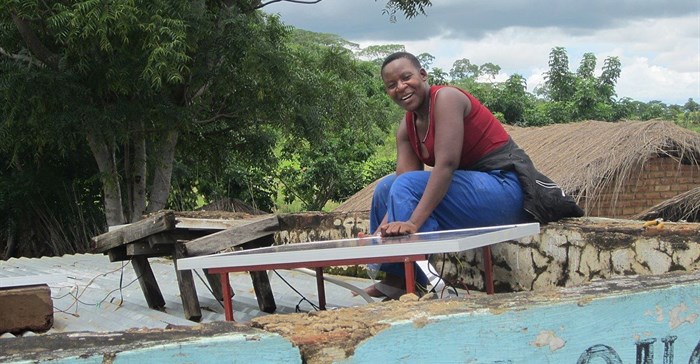If the old adage is true and necessity is the mother of invention, then ingenuity must surely be the father.
Globally, 1.2-billion people live without access to electricity. To overcome the decades-old challenges that developing regions face, solutions must not only address today’s needs but also create a bridge toward tomorrow’s opportunities.
Within this decade, the global off-grid solar energy market has grown complex and dynamic. Initially, it was marked by low levels of activity and low-power lighting, but there has been significant growth in recent years driven by improvements to hardware and customer service options.
More than 130-million off-grid devices, from solar lamps to high-efficiency appliances, have been sold since 2010, reaching approximately 17% of the global market while generating $3.9bn in revenue.
Off-grid growth
Sub-Saharan Africa was an early focus of off-grid solar initiatives, and it remains a target for products and services. The region is home to just over a billion people, with more than 600-million living without access to electricity.
Within this region, even the most basic access to off-grid solar can have a direct impact on daily life. Solar lamps offer a means to eliminate the need for kerosene and other fuel-based lighting, improving both household health and quality of life.
In 2017, off-grid solar provided electricity to more than 360-million people globally. While this is an accomplishment, the projected population growth of Sub-Saharan Africa may outpace its current advances in energy access.
Expanding the systems and structures that support local initiatives will help off-grid solar growth to keep pace. Through developing off-grid solar projects in the Caribbean and the pursuit of solar-based business opportunities in Kenya, I’ve seen first hand how in-depth knowledge of local markets is critical to achieving overall success.
A mobile economy
People living off-grid in Sub-Saharan Africa are gaining access to electricity through a number of improvements to solar system efficiency and pricing.
A wide array of products has emerged to meet customers’ needs. These range from low-power lighting of less than 10 watts (termed “pico solar”) to larger plug-and-play solar home systems that are capable of powering appliances like televisions, radios and fans. Customers can also purchase and assemble component-based systems consisting of solar modules, batteries and lights.
Financial innovations have also helped to lower the barriers to accessing off-grid solar. Consumers can now purchase solar products with cash or under a pay-as-you-go (PAYGO) business model. The PAYGO model allows customers to meet their long-term energy needs at a lower upfront cost, while the company owns and maintains the solar system.
The growing and diverse use of mobile phones, in combination with remote system-metering and monitoring technologies, has been a driving factor of the success of the PAYGO business model.
Business innovations
Several companies have embraced new technologies to ease access to renewable energy in Sub-Saharan Africa.
Angaza, a US-based company, manufactures the hardware and monitoring systems that enable other companies to integrate PAYGO into their off-grid solar solutions.
M-Pesa, founded in Kenya, allows customers to pay for goods and services by transferring money via their mobile phones. More than 30-million people in 10 countries spanning Africa, Europe and Asia now use the service.
M-Kopa Solar, a Kenyan off-grid solar supplier, allows its customers to avoid high upfront costs for solar systems. It leverages the M-Pesa platform, offers PAYGO service and accepts instalment payments.
Other companies employing a PAYGO model in the African market include Mobisol, Azuri Technologies, BBOXX and SolarNow.
While these companies have achieved some success, it’s important to remember that 46 culturally and geographically diverse countries make up Sub-Saharan Africa. As a result, a flourishing business model in rural Kenya may not translate into success in rural Senegal.
Empowering ingenuity
According to the World Bank Group, companies that offer a full range of energy products, provide PAYGO services, replicate proven business models in established markets or focus on achieving excellence in a specific aspect of the off-grid solar market will have a competitive advantage in the coming years.
While no one model is expected to dominate, businesses that leverage local market insights will increase their odds for success. Empowering local ingenuity through education, shared development initiatives and technology transfers will further the creation of solutions from the very areas where need is most keenly felt.
The road to full-energy access will be filled with challenges, but the institutions, the businesses, organisations and the nations pursuing energy access solutions are meeting them head on.
 Those that overcome these challenges will have an enormous impact on a region that will continue to undergo dynamic socio-economic changes through the coming decades.
Those that overcome these challenges will have an enormous impact on a region that will continue to undergo dynamic socio-economic changes through the coming decades.























